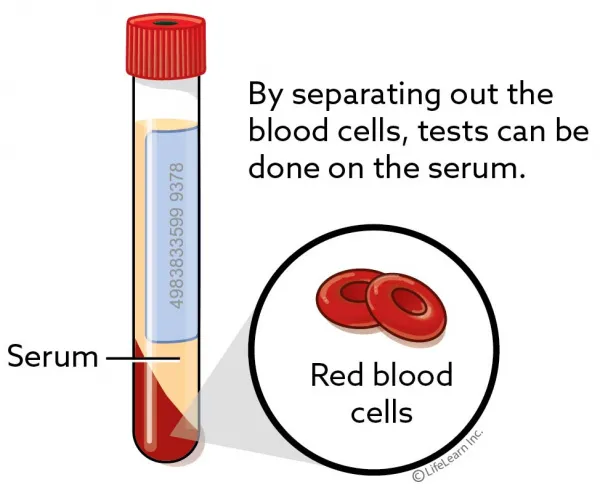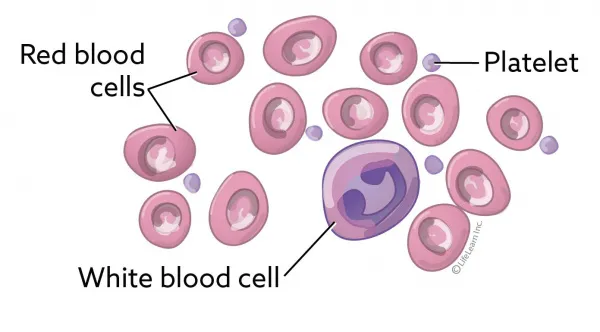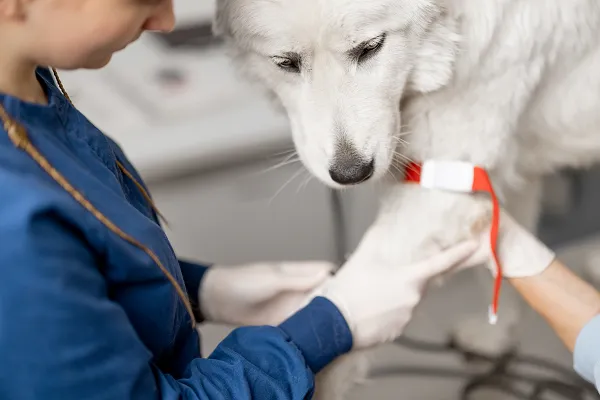Testing for Weight Loss in Dogs

Weight loss in dogs can be caused by many conditions including inadequate intake to meet energy requirements, poor quality nutrition, and many different medical conditions. Testing for weight loss starts with a thorough history and physical exam. If the cause of weight loss is not clear, then screening tests including a CBC, biochemistry, urinalysis, and fecal tests are performed to further investigate. Based on the results of these tests, more specific diagnostic tests such as imaging, bile acids, or ACTH stimulation may be needed to determine the reason for the weight loss.
Testing for Weakness

Weakness can be caused by many different problems and can involve a variety of body systems. Finding the cause of your pet’s weakness starts with a complete history and physical examination. The most commonly recommended screening tests for weakness include complete blood count, serum biochemistry profile, urinalysis, and in a dog, total thyroxine. Additional tests may be recommended based on the results of these screening tests.
Testing for Vomiting

A pet with vomiting may suffer from an isolated incident, or it could be a sign of more severe problems. If the cause for vomiting is not obvious from history and examination, screening tests may be done to eliminate possible causes and determine a treatment plan. Results can also provide a prognosis for recovery and long-term outlook.
Testing for Unexplained Bleeding

Unexplained bleeding is worrisome because it suggests a problem with the body’s blood clotting or coagulation system. Disorders of the coagulation system can arise for many reasons, including shortages of coagulation factors (clotting proteins), a shortage of platelets (a type of blood cell), defective platelets, and serious systemic disease affecting the whole body.
Testing for Sneezing and Nasal Discharge

Sneezing and nasal discharge can occur for many different reasons, including infection, allergy, foreign body, and tumors. A thorough history and physical exam is the first step in diagnosing the cause of sneezing/nasal discharge. Initial screening tests are outlined, including CBC, biochemistry profile, urinalysis, and coagulation testing. Specific tests and more advanced diagnostics are also summarized.
Testing for Seizures

Finding the cause of a pet’s seizures can be difficult. Screening usually starts with a complete history and physical examination, followed by blood and urine tests to look for underlying diseases that can cause seizures. If the cause still cannot be identified, it is possible that they originate within the brain itself and further neurologic testing might be advised.
Testing for Pancreatic Disease

The pancreas is an abdominal organ responsible for regulating blood glucose (endocrine function) and releasing enzymes that aid in digestion (exocrine function). Problems with the pancreas can cause a variety of conditions, discussed here. Clinical signs and tests are outlined.
Testing for Pallor

In pets, pallor is usually detected as a loss of color from the gums and inner eyelids and can be a sign of anemia or poor circulation. A pet’s history of illness and a complete physical examination are important in determining the cause of the pallor. However, your veterinarian may also recommend doing screening tests such as a complete blood count, serum biochemistry and urinalysis. Additional tests may also be needed.
Testing for Lyme Disease in Dogs

This handout discusses Lyme disease in dogs, primarily the issue of methods of testing for the disease.
Testing for Low Blood Sugar

Hypoglycemia can be caused by many different things including liver failure, sepsis, Addison’s disease, and overdose of insulin in the treatment of diabetes mellitus. A tumor of the pancreas called an insulinoma can also cause low blood glucose due to excessive production of insulin. After detecting hypoglycemia on a blood sample, determining the cause includes a full history, physical exam, CBC, biochemistry profile, and urinalysis. More advanced testing such as imaging, biopsy, or ACTH stimulation testing may be recommended.

